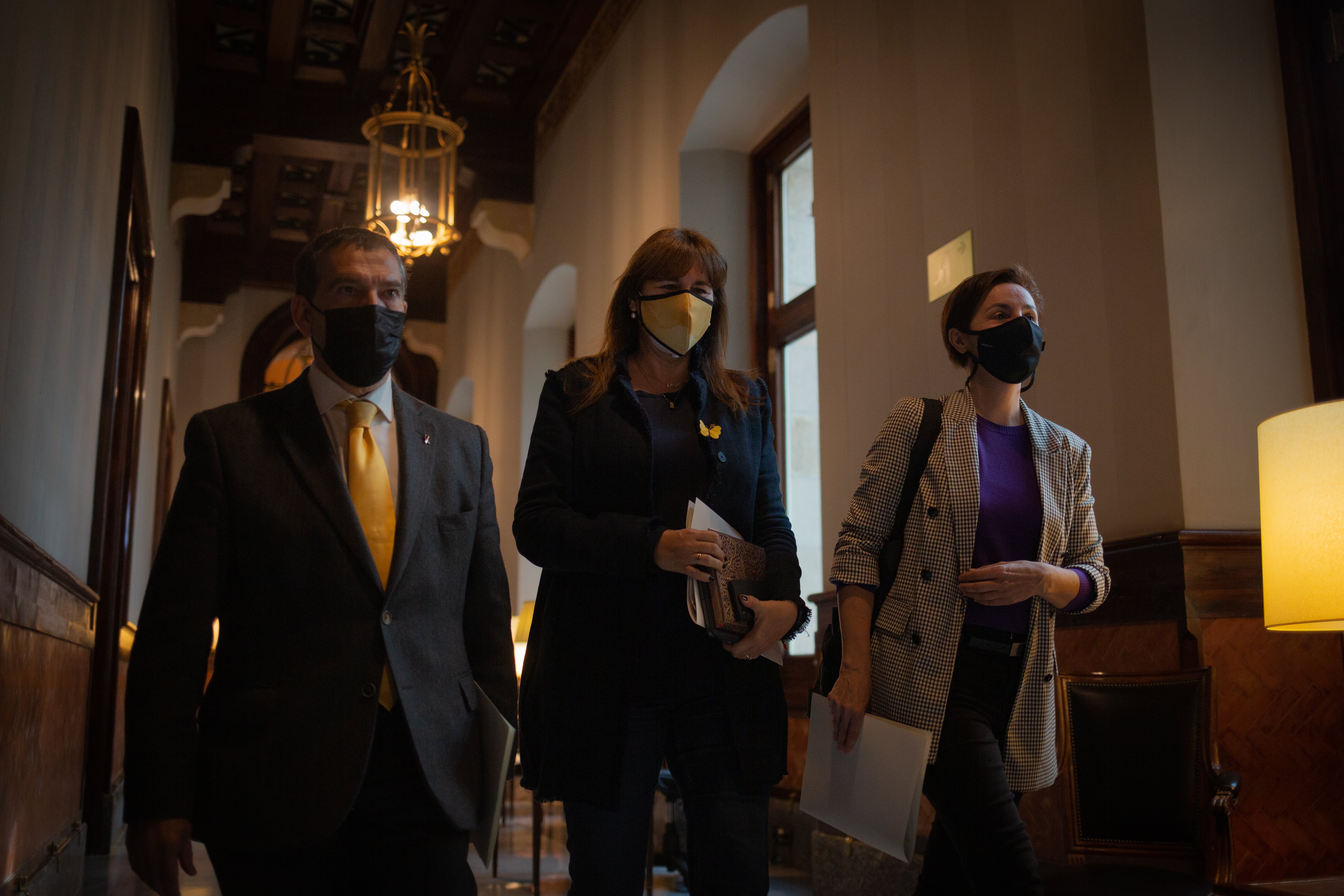During the period when Carme Forcadell presided over the Catalan Parliament, members of the two pro-independence parties on the Bureau, ERC and the-then CDC, met regularly to coordinate the strategy to be followed in the meetings of the chamber's governing body. Under Roger Torrent’s speakership from 2018, the same dynamic continued, but the poor relationship between ERC and Junts ended up destroying the will for unity of action. With the new legislature, Laura Borràs has now sought to recover the initiative so that the pro-independence work together.
This Tuesday at 9 am, the five pro-independence members of the Bureau - two from Junts, two from ERC and one from the CUP - were summoned to organize and prepare the next meeting, the first of the new Bureau of Parliament. The meeting was attended by Laura Borràs, Jaume Alonso-Cuevillas, Anna Caula and Ruben Wagensberg, in person, and by Pau Juvillà - still in coronavirus quarantine - at a distance. Meanwhile, in Madrid, the three pro-independence groups were also working to present the proposed amnesty legislation to Congress.
The new government, still up in the air
The meeting was held with background rumblings of the umpteenth quarrel between ERC and Junts, who are currently continuing the negotiation process for the investiture of Pere Aragonès as president of a new government. ERC was unhappy with the attitude of Borràs, who after being proclaimed speaker with ERC votes, publicly criticized the role of her predecessor in the office, Roger Torrent (ERC). Those of the Republican Left believe that it is clear that, having agreed to vote for a speaker from Junts, the latter party will now support the investiture of Aragonès. However, in order not to stumble on the path to a new government, they have vowed not to enter into arguments with their future partners.
The truth, however, is that the deal is not yet closed. Talks have resumed this week with an eye on March 26th, the deadline for holding the first investiture debate. After several three-way meetings last week, contacts are now bilateral again. ERC with Junts, and ERC with the CUP.
As sources close to the negotiations told ElNacional.cat, the basis for unifying the roadmap to the future Catalan Republic is already in place, but the details have yet to be specified and reflected in a document specifying the steps to be followed. For example, in relation to the dialogue table with the Spanish government. Junts has agreed to give this initiative another chance and, according to the sources, ERC will draft the guarantees of compliance that will be the conditions for remaining at the table with the PSOE.
For the moment, the issue of the composition of the new government has not been opened, although they hope that it will be a less complicated area to resolve, once the strategic pro-independence coordination has been agreed on.
For now, the speaker of the Catalan Parliament will not begin the round of consultations with the parliamentary groups, first step to the investiture vote, while she waits for her group to reach a strategic pact with ERC that will definitively pave the way for the formation of the new government. At the same time, the CUP will have to have its say. Its votes will be indispensable for ERC to reach the presidency: at least two of the nine anti-capitalist deputies must not vote against Aragonès. ERC’s priority had been to resolve the investiture and form a new government before the end of March, but now it is not ruled out that it should go to after Easter.
In the main image, three of the five pro-independence members of the Bureau of Parliament. / Europa Press

